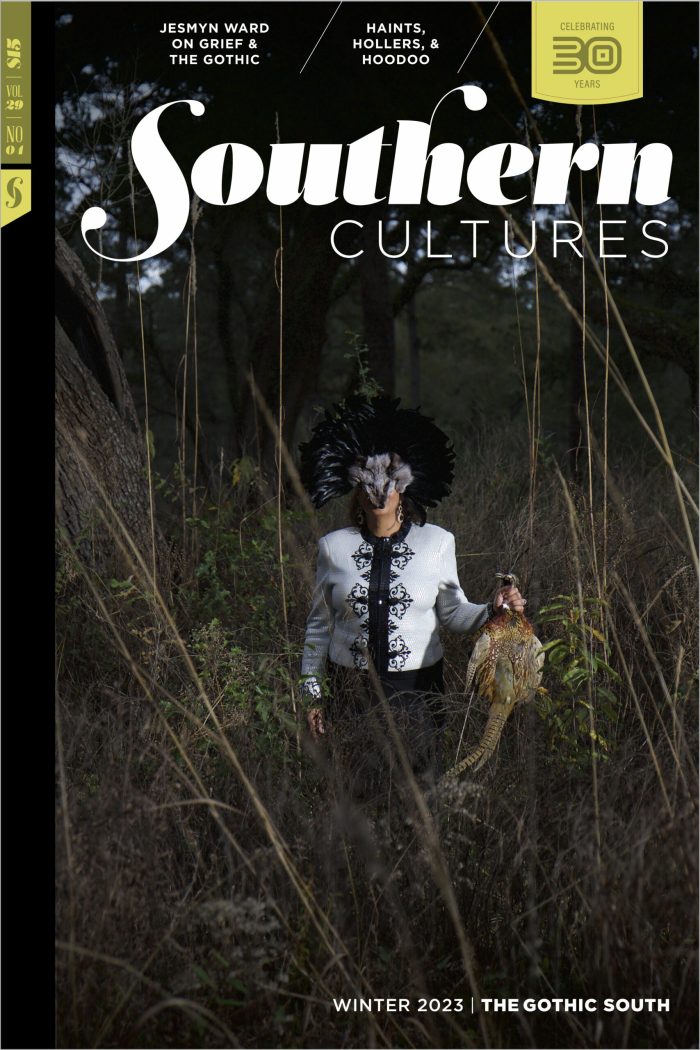by George Wiley,
Alice Fessenden
With the first issue of our second five years we’d like to offer you the chance to respond in print to the ideas and questions raised by Southern Cultures. We hope to be able to devote this space each issue to your impressions about our publication—be they good, bad, or indifferent. (That last one scares »
by Harry L. Watson
With this issue, Southern Cultures completes its fifth year of publication. It’s been an exciting experience and a bit surprising at times, but we’re still learning new things about the South and we’re still having fun. As we begin volume six, Southern Cultures has never looked stronger. Subscriptions are up, submissions are likewise, and spirits »
by J. Bill Berry
The questions are simple. Is there a southern autobiographical impulse, and if so, what are its sources? How does it express itself, and how does it differ from other American autobiographical impulses? Have the impulse and its expression changed over time, and if so why? Is there a territory ahead, and what does it look »
by Drew Gilpin Faust
In the first battle of the Civil War, the only casualty was a horse. When the smoke lifted after the bombardment of Fort Sumter in April 1861, southerners hailed the “bloodless victory” that had yielded the federal fort into Confederate hands without the loss of a single human life. The death of an army horse »
by Lynn Barstis Williams
In his poem “Scottsboro Too Is Worth Its Song,” the Harlem Renaissance poet Countée Cullen complains that poets “have raised no cry” against the injustice suffered by the Scottsboro boys in contrast to their “sharp and pretty tunes” for Sacco and Vanzetti. Granted, no artist memorialized the Scottsboro boys to the degree Ben Shahn did »
by Erik Bledsoe
Linda Tate has noted, with a touch of hyperbole, that “[t]raditionally, southern literature has been understood to be that written by white men and, on rare occasions, by white women—and, in almost all cases, by and about white southerners of the upper middle class.” As recently as 1988, another critic claimed, albeit incorrectly, that Harry »
by Gavin James Campbell
Sony/Monument, 1999 For those who wondered whether the Dixie Chicks were a flash in the pan, wonder no more. Fly surpasses Wide Open Spaces. Melding pop’s lush instrumentals with country’s emotional intensity, the Dixie Chicks craft a sound that should appeal to a wide cross-section of listeners. From honky-tonk tear-jerkers like “Hello, Mr. Heartache,” to »
by Gavin James Campbell
Arhoolie, 1999 The Grammy Award-winning Norteña accordionist Flaco Jiménez has produced such a prodigious amount of material that a compilation surveying some of his better-known works from the last ten years is a welcome sight. Although The Best of is a somewhat misleading title for this CD since it does not include work he has »
by Gavin James Campbell
by Gavin James Campbell
by Gavin James Campbell
by John Shelton Reed
by Brian Carpenter
by Fred Hobson





